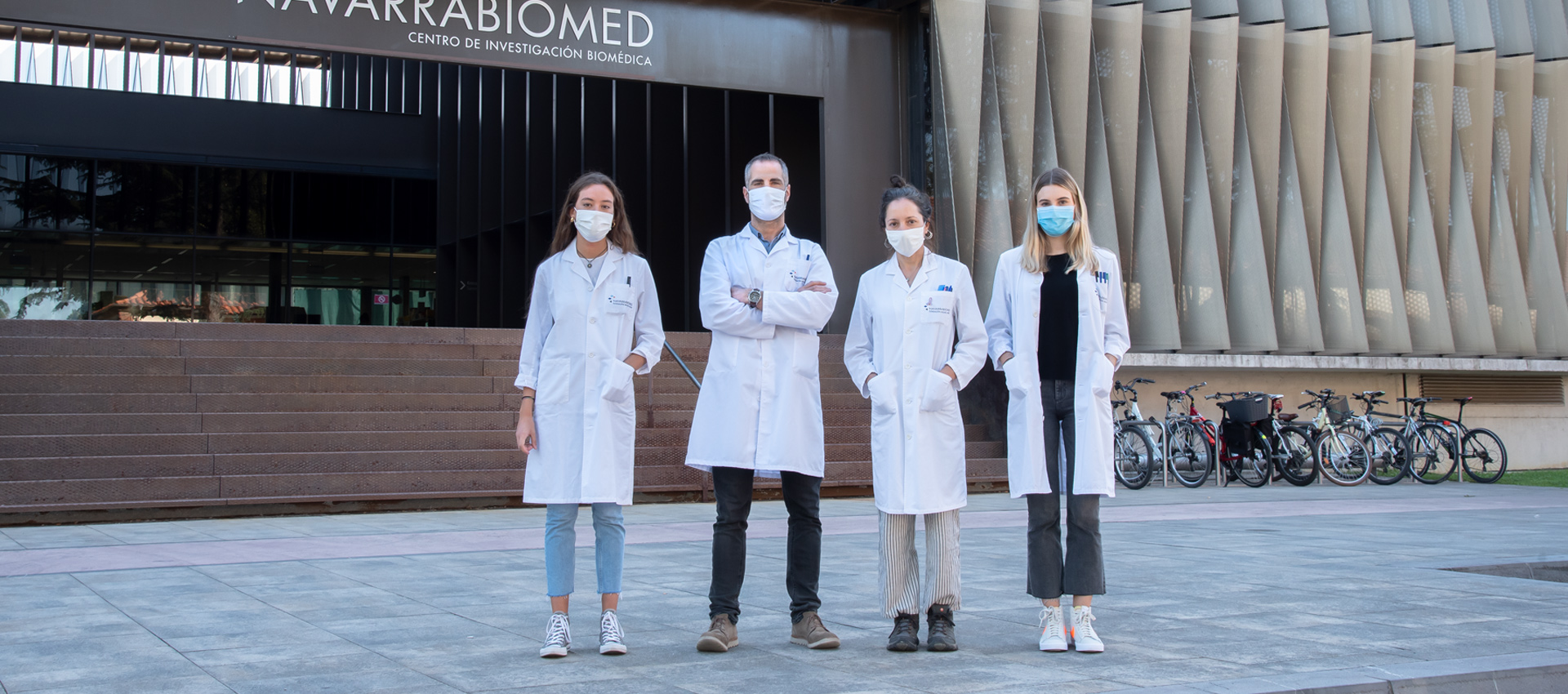
UPNA and Navarrabiomed lead COVID-19 project with €160,000 in funding from Banco Santander
- Four Catalan institutions are also participating in this project to develop molecules with coronavirus-neutralizing properties
The Supera COVID-19 Fund launched by Banco Santander through Santander Universities, in collaboration with Crue Spanish Universities and the Spanish National Research Council (CSIC), has granted €160,000 in funding to a research project on COVID-19 designed by a consortium made up of Navarrabiomed researchers and four Catalan institutions coordinated by the Universidad Pública de Navarra (UPNA). This project seeks to develop molecules with SARS-CoV-2-neutralizing properties for the treatment of patients requiring hospitalization and clinical supervision due to the infection’s severity.
These molecules are based on peptides specific to the ACE2 receptor that can reduce or halt the ability of SARS-CoV-2 to cause infection. “These molecules reproduce the human receptor region the virus attaches to,” explained project leader Jacinto López Sagaseta, from the Protein Crystallography Unit at the Navarrabiomed Biomedical Research Center. “We are trying to create molecules from this region that have a greater capacity to bind to the viral particle, which would hinder the virus’s ability to attach to the natural receptor and thus slow down infection.” According to López, these molecules may “help chemists design drugs that can mitigate the process and speed of infection and thereby facilitate patients’ clinical recovery”.
In order to implement the 12-month project, a consortium was set up of researchers from different disciplines, including chemical synthesis, protein engineering, structural analysis and cell biology, as well as specialists in the conditions of biosafety level three (BSL3, for laboratories, on a scale of one to four), to test the potential of these molecules. Specifically, besides Navarrabiomed and the UPNA, four Barcelona research institutions are also participating in the project: IRB Barcelona (Institute for Research in Biomedicine), IQAC-CSIC (Institute for Advanced Chemistry of Catalonia), CIBER-BBN (Bioengineering, Biomaterials and Nanomedicine Subject Area of the CIBER Biomedical Research Center), and IRTA (Institute of Agrifood Research and Technology). Besides Jacinto López Sagaseta, other Navarrabiomed researchers taking part in this research project include Gilda Dichiara Rodríguez, Elena Erausquin Arrondo and Ane Ochoa Echevarría, who are members of the Protein Crystallography Unit.
The consortium members hope that “the availability of molecules with a strong inhibitory effect will significantly mitigate the socioeconomic impact of the pandemic due to the persistence of current and/or future SARS-CoV-2 outbreaks, as well as outbreaks of other potentially harmful coronaviruses with similar entry routes,” said López.
€8.5 million fund
The €8.5 million Supera COVID-19 Fund has been earmarked for projects of different organizations that are based on the fund’s three-pronged strategic approach against COVID-19: research on the virus and its prevention, research on its social impact, and strengthening universities’ technological capacity and reducing the digital divide. A total of 700 grant applications were submitted, of which 35 were selected and received funding to the tune of €5 million to carry out applied research against the virus. Nearly €1 million was also distributed to twelve projects on the social impact of the virus. Finally, €2.5 million will be allocated to supply young university students in unfavorable socioeconomic situations throughout Spain with nearly 5,000 computers and 15,000 Internet connectivity solutions and webcams.
